Racism and racial discrimination have, horrifyingly, been dark sides to our culture and society for as long as humanity has been evolving. While many assume that we are living in ‘enlightened times’, events in recent history such as the police killing of George Floyd show that there is still very much a need for people to speak out against systemic racial profiling and targeting.
The Floyd atrocity led to a renewal of protests under the banner of Black Lives Matter, fuelling protests and demonstrations all over the world. However, it is sad to say that societal racism is an issue that has persisted long since the time of Dr Martin Luther King Jr – while society has grown hugely since Dr King’s landmark ‘I Have a Dream’ speech, there are still clear waves of racism and discrimination in society which are holding people back from living safe, full lives with the same opportunities as everyone else.
However, this is just one clear example of modern racism. Racism against people from east to west, people of different religions, and even those in different communities in the same countries, continues to run rife. Horrific periods of history such as the slave trade, all the way through to the holocaust, have pure racism at their hearts.
Racism is clear not only in some corporate cultures and in high profile cases and atrocities, but in entertainment, sport, and in everyday life. In this fact file, we will be looking at a few facts, figures and statistics which assess racism under a fine microscope. Racism is an ever-burning problem which needs more help eradicating now than ever before.
1. Racism affects a huge number of students.
According to surveys in the US, around 15.8% of students polled advised that they experienced some form of bullying or aggravation relating to race.
2. Statistics show racial division in law and order.
Crime statistics applying to New York City alone in 2018 show that only 10% of police stops involved white people, while 88% of those applied to people of black or latinx heritage. It’s also clearly stated that at least 70% of these stops were found to be innocent.
3. The same applies in the UK.
UK statistics do no not make for comfortable reading in a similar regard. In the UK, it’s thought that black people will be stopped six times as much by police than white people, while Asian people will face stops twice as much.
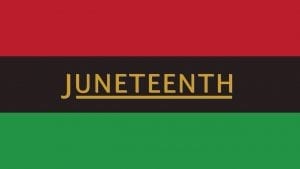
4. Racism can even impact employment opportunities.
Statistics from further studies in the US also show that people with names pertaining to belong to white people – as opposed to those with names supposedly pertaining to belong to black people – received twice as many call-backs when it came to job applications.
5. Incarceration doesn’t balance well in the US.
Non-white people in the US, according to statistics, account for around 30% of the country’s total population. Despite this, around 60% of all people imprisoned in the US are non-white. Further statistics show that 1 in 15 African American men are incarcerated, while this may only apply to 1 in 106 white men.
6. US prison figures are eye-opening.
Similar figures show that women of African American heritage are three times as likely to be imprisoned than white women. Hispanic women are 69% more likely, by the same parametres, to face jail than white women.
7. Stats regarding border control are disturbing.
Research found that around 79% of EU border guards – canvassed in a sample across airport staff – regarded race or ethnicity as helpful in assessing travel irregularities – i.e., those assumed to be entering a country illegally without due papers.
8. There’s an important law we should all remember.
The Civil Rights Act of 1866, a cornerstone of the US Constitution, saw a series of amendments, leading to the ratification of a 14th amendment which read: ‘No state shall make or enforce any law which shall abridge the privileges or immunities of citizens of the United States; nor shall any State deprive any person of life, liberty or property, without due process of law; nor deny to any person within its jurisdiction the equal protection of the laws’.
9. Racism has always been a huge presidential issue.
Several US Presidents have been outspoken on how racism must be treated in society. John F Kennedy, for example, famously stated ‘race has no place in American life or law’. In fact, Kennedy ensured that any decisions made with regard to White House staffing took place without considering race.
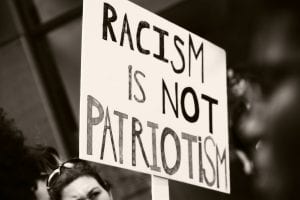
10. What is affirmative action?
Affirmative Action, which at its simplest definition is the process through which race is considered to help boost marginalised representation in educational and employment submissions, is a controversial topic. Research shows that 67% of people in the US believe that college admissions should be solely based on merit alone, while 28% believe race should always be considered. Statistics, however, also find that there is a 58% to 37% split in favour of affirmative action, as recently as 2013.
11. Former President Obama faced many unfounded, racist allegations.
Racism surrounding Barack Obama’s ascent to the US Presidency was rife – with claims reverberating that he was not a US national. However, following years of insistence the 2010 US census confirmed that, in writing, Obama is of black or African American descent.
12. Church rules may have been traditionally separatist.
It used to be commonplace at some churches across the US for there to be a piece of pine wood with a comb attached at the entrance. Only those with lighter skin than the piece of wood – and with hair which would easily comb through – were allowed access to the church within.
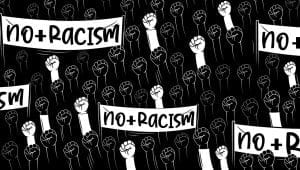
13. Even sport is bogged down in racism.
Research conducted in 2007 found that referees in the National Basketball Association were more likely to call fouls for players whose race was different from their own.
14. We are – litreally – all from the same ancestor.
Evolutionary history, dating back millennia, shows that all people came from the same base race – meaning that despite there being different races – and perceived divisions – we all come from the same common ancestor, with it largely believed that this ancestor hailed from the east of Africa.
15. Colonisation and racism came hand in hand.
Colonialism and racism have been occurring all over the world for centuries. For example, settlers heading from Europe to North America would begin killing Native Americans and taking their land. Similar effects could be seen as Europeans emerged in Australia, land which originally belonged to Aborigines.

16. Sometimes, racism fuels revolution.
Nazism, of course, is an infamous example of racism fuelling political revolution. Adolf Hitler’s rise to power in Germany saw millions of Jewish people rounded up and killed during the holocaust. It is these atrocities which helped lead to the Second World War, in attempts to wrest control from Hitler and his Nazi Party. There are still people to this day who deny that the holocaust ever happened – despite overwhelming evidence to the contrary.
17. South African history is mired in separatism.
One of the most infamous periods of institutional racism occurred during the apartheid era in South Africa. From 1948 to 1993, racial separation bled into national laws, in the name of progressing white supremacy. There were segregated areas which black people and those of Asian or ‘mixed’ descent were not allowed to travel into. Voting rights were restricted, too.
Apartheid in South Africa ended in 1993, with all-race elections taking place the next year. However, to this day, the country continues to feel the social repercussions of this horrific period in South African history.
18. Tribalism is a form of racism still rife today.
Tribalism, a phenomenon where local tribes war amongst each other on grounds of local difference, has continued across Africa and Asia to this day. A recent example of tribalism continues to be salient across Afghanistan.
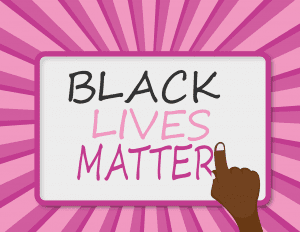
19. Unthinkable numbers of people die as a result of racism.
Wars in the name of racism, nationalism, and in the fight against both phenomena, have resulted in the deaths of millions of innocent people worldwide. For example, the Second World War alone resulted in the deaths of more than 52 million people globally. In the First World War, more than 8 million people lost their lives.
20. Italy was once led by a racist dictator.
Italy was ruled by the fascist dictator Benito Mussolini for many years. In particular, Mussolini led claims that much of Soviet Russia was Jewish, and fascists in the country continued to profess views against Slavic people from eastern Europe.
21. Racism is a major problem down under.
Racism is still prevalent across Australia to this day, decades on from appalling treatment of Aborigines, the country’s indigenous people. Statistics from a few years ago show that up to 22% of people with African backgrounds, too, felt they received work-based discrimination. 32% of people of Aboriginal origin in a similar survey stated that they received what they felt to be racial discrimination simply by undertaking regular shopping.
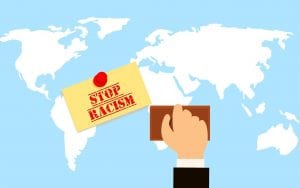
22. The wage gap divides races in the US.
Statistics in the US show that the average wealth of a white family is thought to be more than 20 times that of the average black family.
23. The incarceration stats in the US continue.
Further incarceration statistics in the US show that, despite figures being apparently level for both black and white men taking illegal drugs, black men are ten times more likely to face arrest and imprisonment.
24. Even loan handling in the US is racist.
Mortgage statistics in the US dating back decades show that there is a clear preference in lending to white people. Between the years of 1934 and 1962, it is thought that up to 98% of all money offered by the Federal Housing Authority – which totalled around $120 billion in underwriting – went directly to white families.

25. Hitler didn’t start the ‘master race’ ideology.
The idea of white, or Caucasian being the ‘master race’ dates back much further than the ideals of Adolf Hitler. In fact, It is clear that Professor Johan Friedrich Blumenbach claimed that Caucasians had ideal preference above all other races and creeds.
26. In fact, the idea of ‘aryan people’ is centuries old.
The idea of ‘aryanism’ that ran through Hitler’s ideals dates back to the 1700s, where many people across Europe referred to Caucasian in this manner. In some cases, the term aryan was used to refer to people from Nordic countries. Specifically, this became known as prejudice against anyone without the ‘perfect’ racial makeup of blonde hair, white skin, and blue eyes. It is this ideal which would ultimately lead to the rise of Hitler and the start of World War II.
27. Britain has major racism problems.
Nationalism in the UK has emerged in various forms over the years. The British National Party, or BNP, and the UK Independence Party, or UKIP, are the two most emergent parties and groups of this nature. Both parties and their leaders have continued to deny that they are fuelled by racism. However, both have vehemently opposed ‘Islamic colonisation’, with genuine fear that a growing Muslim population in the UK could bring sharia law into the mainstream. However, claims of such rising ‘colonisation’ go against the current makeup of the UK. It’s thought that less than 5% of people in the UK are Muslim.

28. Anti-Muslim ideologies persist in the UK.
However, it’s clear that anti-Islam rhetoric has impacted heavily on the opinions of many British people – with up to 27% of people polled in the UK in 2013 claiming that they ‘didn’t trust’ Muslim people. It is thought that unfounded negative feeling towards Asian people, following the War on Terror of 2003, may have inspired racist feelings in many British people.
29. African Americans do not feel safe around the police – according to Statistics.
Surveys conducted by YouGov and Yahoo found that, of US citizens, only 5% of black people felt more secure when they saw a police officer. In contrast, 60% actually felt less secure. This conflicts directly with how white people feel in return, as only 28% of white people surveyed felt less secure, with 26% feeling more secure. The general feeling across the board is that police presence has ‘no effect’. However, the stark differences between black and white people in terms of negative feeling is worrying.
30. Again, there’s a clear wage divide.
In the US, there is still a clear divide in the amount of money an average white person makes compared to an average black person. White men aged 55 or older are likely to make around $926 per week, while black women of the same age are only likely to make around $769 per week in comparison.
Conclusion
Racism is a problem that has many forms and many faces. Continued steps to bring racial atrocity to the attention of the world are rolling forward – in a world where we have left long periods of shocking abuse through slavery, apartheid and holocaust, it is genuinely shocking to see how much injustice continues to run rampant across a supposedly civilised world.
Even against a backdrop of pandemic terror through COVID-19, the Black Lives Matter movement continued to raise safe protests worldwide – and millions of people continue to hope for justice in a world that remains so unfair.
Do you know any facts about racism? Share them in the comments below.










